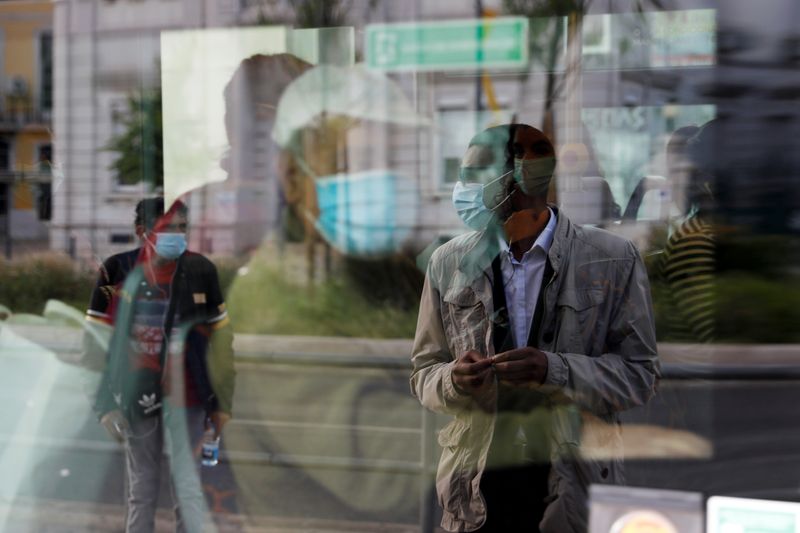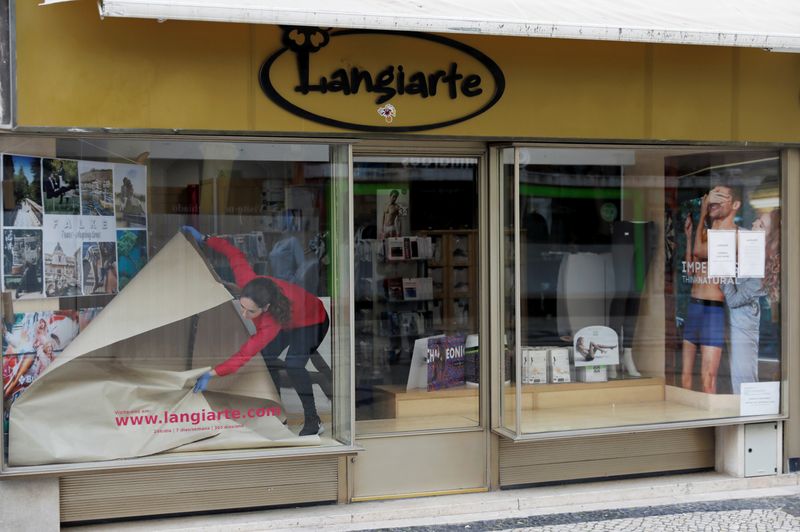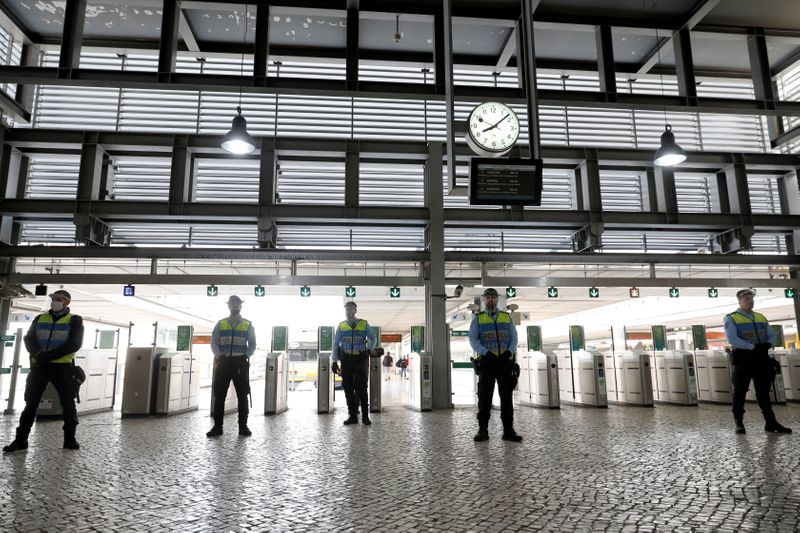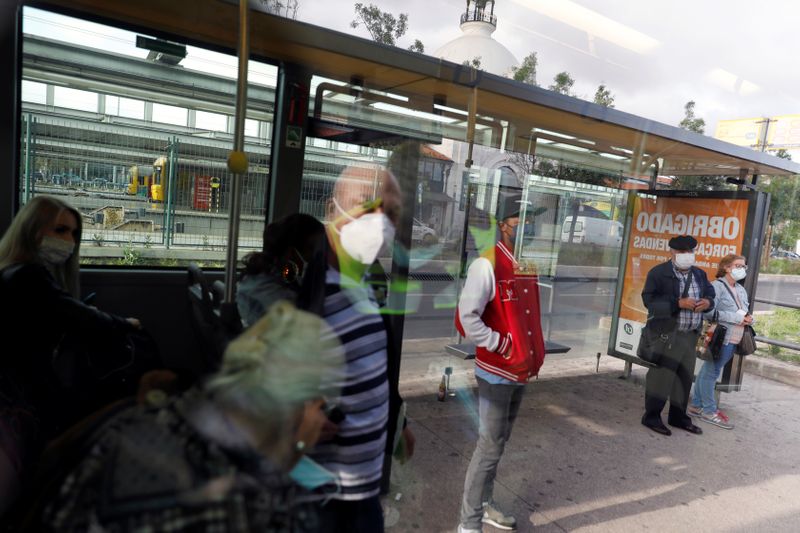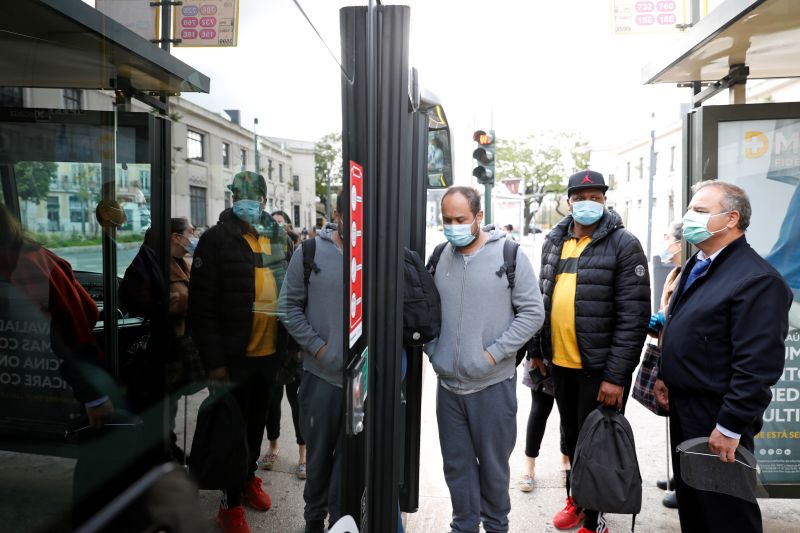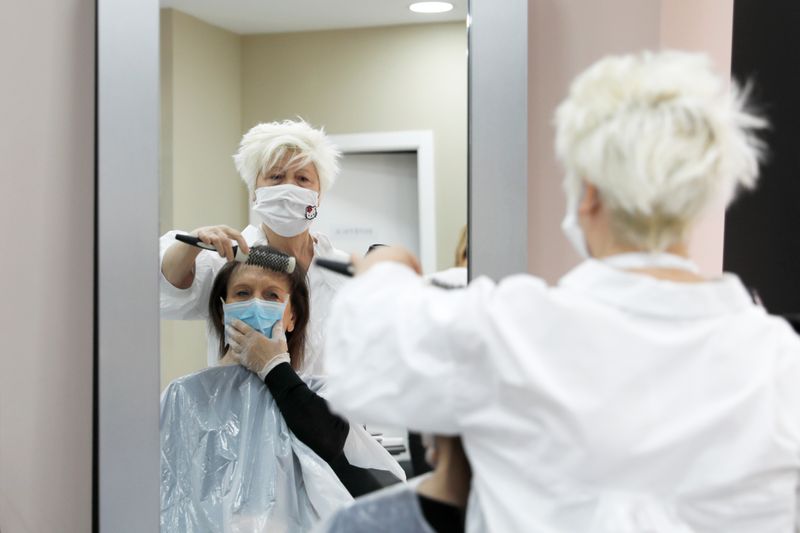LISBON (Reuters) – As Portugal slowly started to ease its lockdown measures imposed to fight the coronavirus on Monday, hairdresser Cleonice Caldeira reopened her tiny beauty salon in the heart of Lisbon but her business may now face a long road to recovery.
“It’s complicated but we have to move on,” 48-year-old Caldeira told Reuters while wearing a mask and a plastic face shield to cut the hair of her second customer of the day.
After a six-week lockdown when people were urged to stay indoors, and most non-essential services were shut, a three-phase plan began on Monday to open up different sectors every 15 days, starting with hairdressers, small neighbourhood shops, car dealerships and bookshops.
But businesses must follow strict safety and capacity restrictions.
At hairdressers, for instance, staff members must wear protective equipment, hand sanitizer must be available and customers are only allowed in with an appointment.
The use of masks is now obligatory in enclosed public spaces like supermarkets and on public transport, with rule-breakers risking fines of up to 350 euros. Remote working is still recommended where possible, and gatherings must be limited to 10 people.
Due to the tough rules still in place, businesses are gearing up for the challenges ahead.
‘NEED TO WORK TO EAT’
“Economically speaking, it was very difficult,” said 33-year-old Bruna Pegado, an hairdresser also working at Caldeira’s salon. “Recovery will be slow because with the rules not all customers will come back at the beginning.”
Portugal has so far reported 25,525 cases of the coronavirus and 1,063 deaths, a significantly lower toll compared to other countries, including hard-hit neighbouring Spain.
If the spread continues to slow, bigger stores, restaurants, museums and coffee shops will reopen on May 18 but at reduced capacity.
Kantigal Maganlal, 69, was also reopened his small drug store on Monday and said he missed his loyal customers the most.
“It is so good (to be back) but there is always a concern about the situation we are going through,” he said.
The outbreak is set to leave long-lasting scars on the country’s once-bailed out, tourism-dependent economy, with the International Monetary Fund forecasting Portugal’s gross domestic product to contract by 8% this year.
Around one in five workers in Portugal has been laid off since the pandemic, with unemployment rocketing to 380,832 people, or 6.4% – and just 10,000 below its peak during the global financial crisis in 2008.
“Recovery is going to be complicated – either the state helps or I don’t know how it will be,” said shopkeeper Angelina Correia, 58, as she cleaned up her clothing store before opening it to the public. “We need to work to eat.”
(Reporting by Catarina Demony and Miguel Pereira; Editing by Alison Williams)

